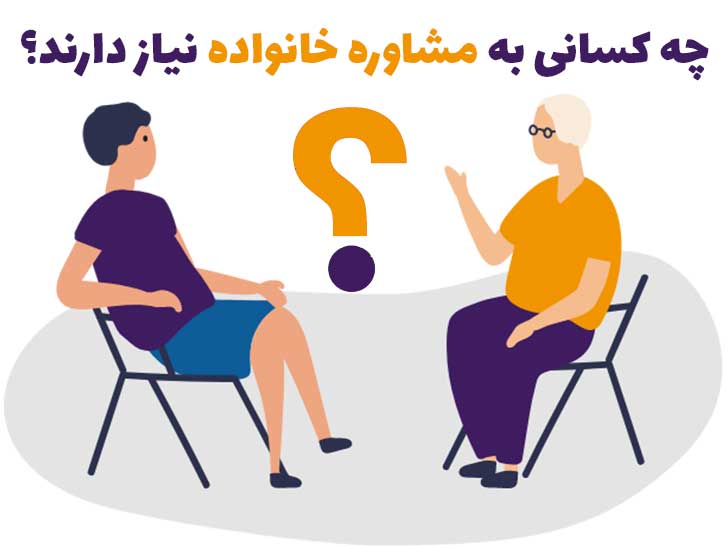اخبار روانشناسی ندای مهر
|
1
not a very happy person
|
2
|
3
|
4
|
5
|
6
|
7
a very happy person
|
|
1
less happy
|
2
|
3
|
4
|
5
|
6
|
7
More happy
|
|
1
not at all
|
2
|
3
|
4
|
5
|
6
|
7
a great deal
|
|
1
not at all
|
2
|
3
|
4
|
5
|
6
|
7
a great deal
|
|
|
|||||||||||||||||||||||||||||||||||||||||||||||||||||||||||||||||||||||||||||||||||||||||||||||||||||||||||||||||||||||||||
|
Survey of Recent Life Experiences (Kohn & Macdonald‚ 1992) – Short form of a measure of hassles
Instructions:
Following is a list of experiences which many people have some time or other. Please indicate for each experience how much it has been a part of your life over the past month. Put a “1” in the box provided next to an experience if it was not at all part of your life over the past month; “2” for an experience that was only slightly part of your life over that time; “3” for an experience that was distinctly part of your life; and “4” for an experience that was very much part of your life over the past month. Intensity of Experience over the Past Month
1 = not at all part of my life
2 = only slightly part of my life
3 = distinctly part of my life
4 = very much part of my life
References
Kohn‚ P. & Macdonald‚ J.E. (1992). The Survey of Life Experiences: A decontaminated hassles scale for adults. Journal of Behavioral Medicine‚ 15‚ 221-
http://www.yorku.ca/rokada/
|
Tomich‚ P. L.‚ & Helgeson‚ V. S. (2004). Is finding something good in the bad always good? Benefit finding among women with breast cancer. Health Psychology‚ 23‚ 16-23.
Carver‚ C. S.‚ & Antoni‚ M. H. (2004). Finding benefit in breast cancer during the year after diagnosis predicts better adjustment 5 to 8 years after diagnosis. Health Psychology‚ 26‚ 595-598. [abstract]
2 = A little
3 = Moderately
4 = Quite a bit
5 = Extremely
2. has taught me how to adjust to things I cannot change.
3. has helped me take things as they come.
4. has brought my family closer together.
5. has made me more sensitive to family issues.
6. has taught me that everyone has a purpose in life.
7. has shown me that all people need to be loved.
8. has made me realize the importance of planning for my family’s future.
9. has made me more aware and concerned for the future of all human beings.
10. has taught me to be patient.
11. has led me to deal better with stress and problems.
12. has led me to meet people who have become some of my best friends.
13. has contributed to my overall emotional and spiritual growth.
14. has helped me become more aware of the love and support available from other people.
15. has helped me realize who my real friends are.
16. has helped me become more focused on priorities‚ with a deeper sense of purpose in life.
17. has helped me become a stronger person‚ more able to cope effectively with future life challenges.
Answer the following questions adapted from Rod Martin's Humor Styles Questionnaire. Respond as honestly and objectively as you can.
|
1
|
2
|
3
|
4
|
5
|
6
|
7
|
|
Totally Disagree
|
Moderately Disagree
|
Slightly Disagree
|
Neither Agree nor Disagree
|
Slightly Agree
|
Moderately Agree
|
Totally Agree
|
13- If I am having problems or feeling unhappy‚ I often cover it up by joking around so that even my closest friends don't know how I really feel.
From: Psychology Today Magazine. July/August 2006. p 77
|
1
|
2
|
3
|
4
|
5
|
6
|
7
|
|
Very rarely
|
very frequently
|
|
1
|
2
|
3
|
4
|
5
|
6
|
7
|
|
Very rarely
|
very frequently
|
|
1
|
2
|
3
|
4
|
5
|
6
|
7
|
|
Very rarely
|
very frequently
|
|
1
|
2
|
3
|
4
|
5
|
6
|
7
|
|
Very rarely
|
very frequently
|
Cheek‚ J.M. (1983). Unpublished‚ Wellesley College‚ Wellesley MA 02181
|
INSTRUCTIONS: Please read each item carefully and decide to what extent it is characteristic of your feelings and behavior. Fill in the blank next to each item by choosing a number from the scale printed below.
|
|
|
1 = Very uncharacteristic or untrue‚ strongly disagree
2 = Uncharacteristic 3 = Neutral 4 = characteristic 5 = Very characteristic or true‚ strongly agree |
|
|
____
|
1. I feel tense when I'm with people I don't know well.
|
|
____
|
2. I am socially somewhat awkward.
|
|
____
|
3. I do not find it difficult to ask other people for information.
|
|
____
|
4. I am often uncomfortable at parties and other social functions.
|
|
____
|
5. When in a group of people‚ I have trouble thinking of the right things to talk about.
|
|
____
|
6. It does not take me long to overcome my shyness in new situations.
|
|
____
|
7. It is hard for me to act natural when I am meeting new people.
|
|
____
|
8. I feel nervous when speaking to someone in authority.
|
|
____
|
9. I have no doubts about my social competence.
|
|
____
|
10. I have trouble looking someone right in the eye.
|
|
____
|
11. I feel inhibited in social situations.
|
|
____
|
12. I do not find it hard to talk to strangers.
|
|
____
|
13. I am more shy with members of the opposite sex.
|
Cheek‚ J.M.‚ & Melchior‚ L.A. (1985). Measuring the Three Components of Shyness. In M.H. Davis & S.L. Franzoi (Co-chairs)‚ Emotion‚ Personality‚ and Personal Well-Being II. Symposium conducted at the annual convention of the American Psychological Association‚ Los Angeles.
|
INSTRUCTIONS: Please read each item carefully and decide to what extent it is characteristic of your feelings and behavior. Fill in the blank next to each item by choosing a number from the scale printed below.
|
|
|
1 = very uncharacteristic or untrue‚ strongly disagree
2 = uncharacteristic 3 = neutral 4 = characteristic 5 = very characteristic or true‚ strongly agree |
|
|
____
|
1. I feel tense when I’m with people I don’t know well.
|
|
____
|
2. During conversations with new acquaintances‚ I worry about saying something dumb.
|
|
____
|
3. I am socially somewhat awkward.
|
|
____
|
4. I do not find it difficult to ask other people for information.
|
|
____
|
5. I am often uncomfortable at parties and other social gatherings.
|
|
____
|
6. When in a group of people‚ I have trouble thinking of the right things to talk about.
|
|
____
|
7. I feel relaxed even in unfamiliar social situations
|
|
____
|
8. It is hard for me to act natural when I am meeting new people.
|
|
____
|
9. I feel painfully self-conscious when I am around strangers.
|
|
____
|
10. I am confident about my social skills.
|
|
____
|
11. I feel nervous when speaking to someone in authority.
|
|
____
|
12. I have trouble looking someone right in the eye.
|
|
____
|
13. I am usually a person who initiates conversation.
|
|
____
|
14. I often have doubts about whether other people like to be with me.
|
|
____
|
15. Sometimes being introduced to new people makes me feel physically upset (for example‚ having an upset stomach‚ pounding heart‚ sweaty palms‚ or heat rash).
|
|
____
|
16. I do not find it hard to talk to strangers.
|
|
____
|
17. I worry about how well I will get along with new acquaintances.
|
|
____
|
18. I am shy when meeting someone of the opposite sex.
|
|
____
|
19. It does not take me long to overcome my shyness in a new situation.
|
|
____
|
20. I feel inhibited in social situations.
|

-

عقایدی که صدرصد خانواده شما را خوشبخت می کند؟
کارشناس ندای مهر (مشاوره خانواده) -

چه کسانی به مشاوره خانواده نیاز دارند؟
کارشناس ندای مهر (مشاوره خانواده) -

برای مراجعه به مشاوره خانواده آیا باید مریض و یا آشفته باشم؟
کارشناس ندای مهر (مشاوره خانواده) -

مشکل رابطه غیرصمیمی با همسرمان را چگونه حل کنیم؟
کارشناس ندای مهر (مشاوره خانواده) -








